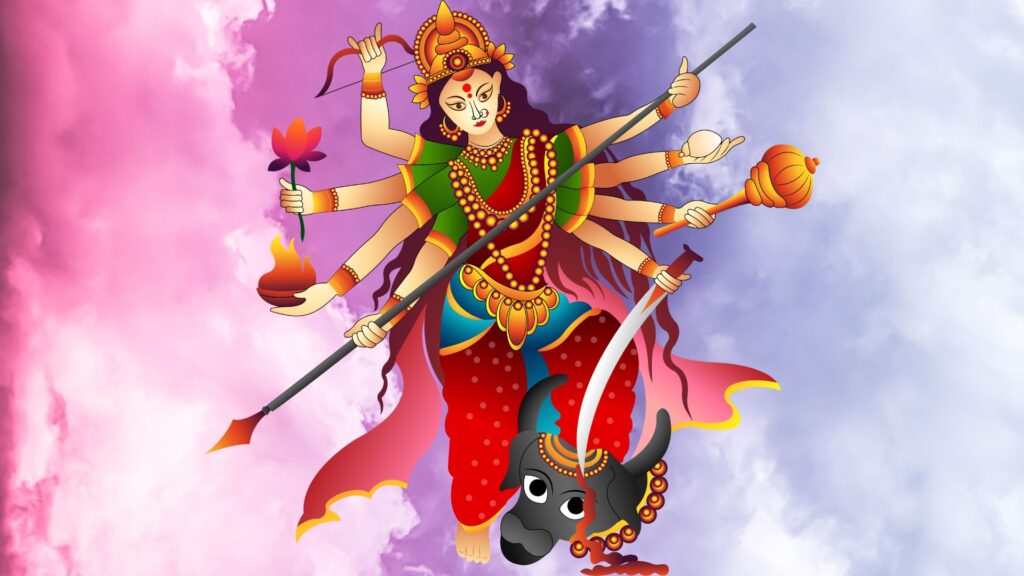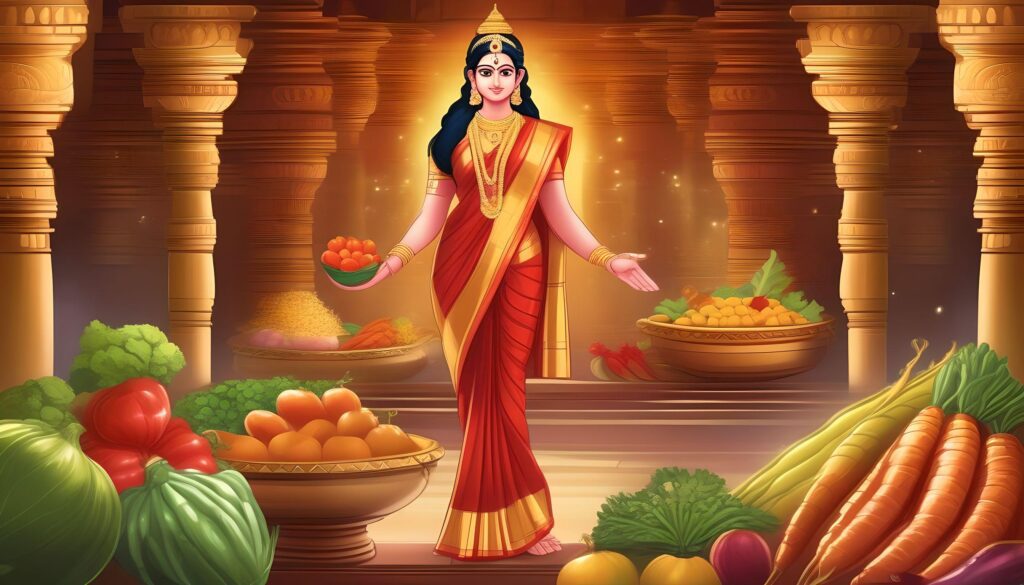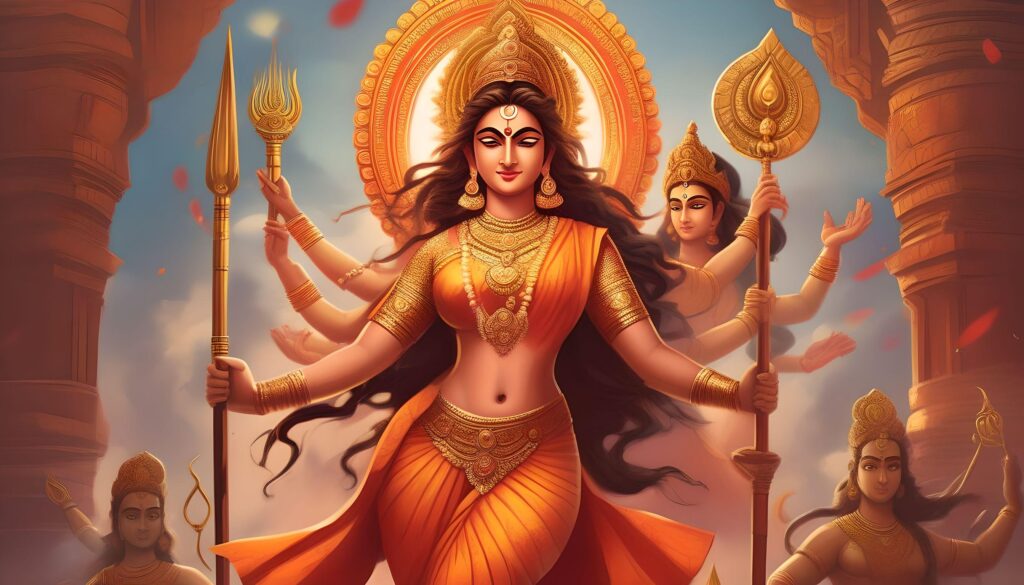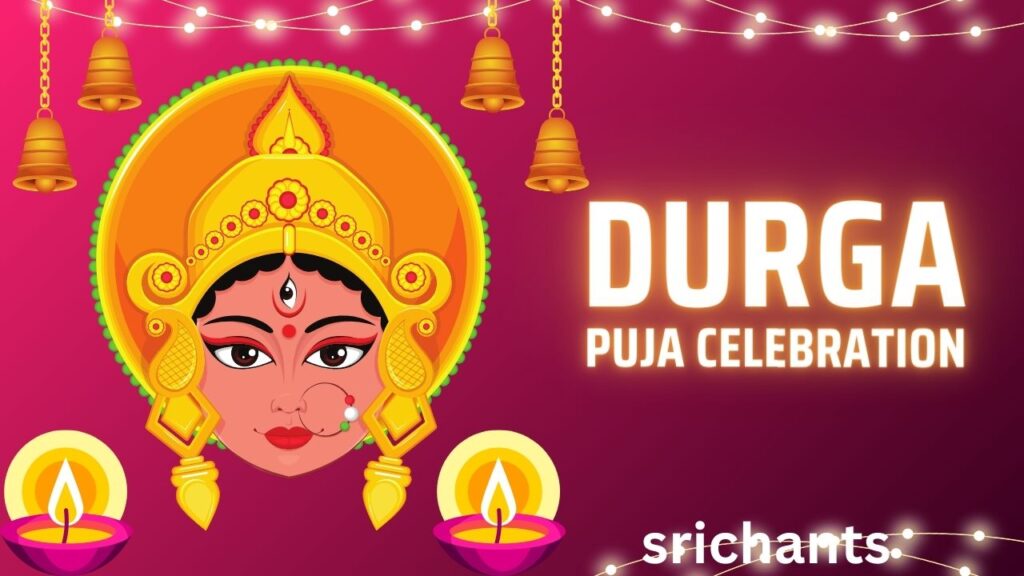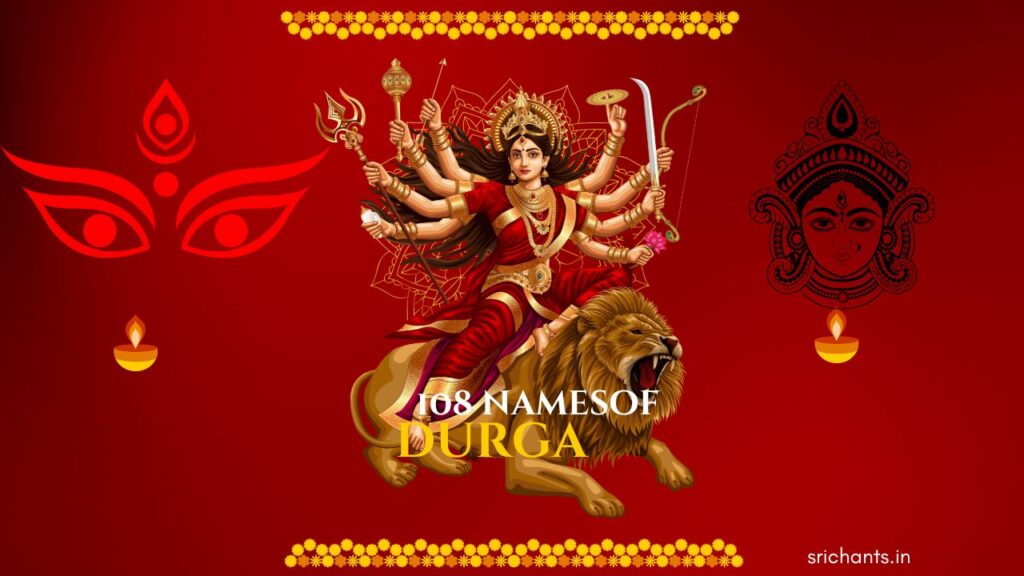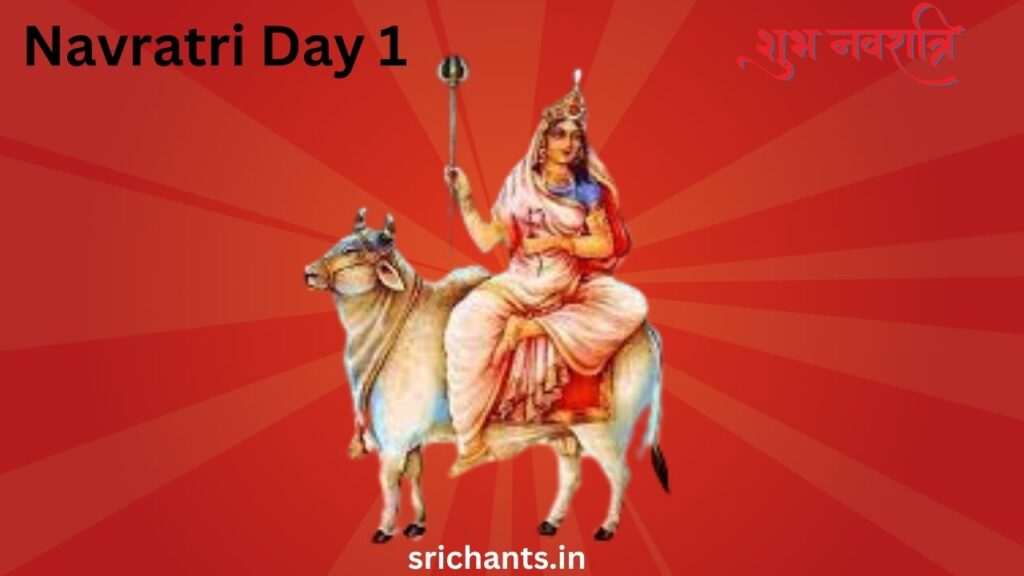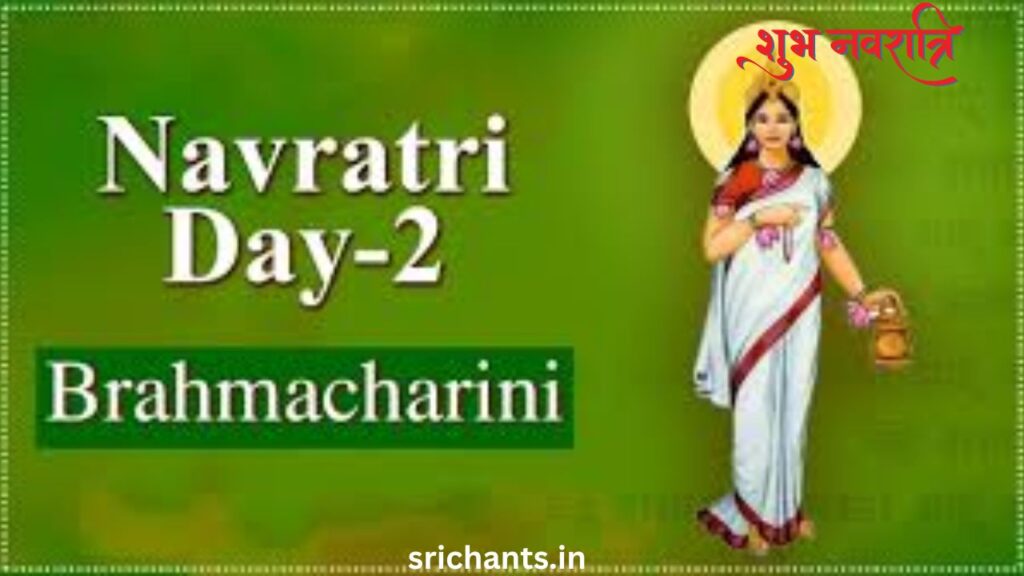Mahishasura Mardini : A Tale of Triumph and Empowerment
Introduction
The rich tapestry of Indian mythology is replete with innumerable tales of heroes, demons, and gods. Mahishasura Mardini, the buffalo demon’s conqueror, is one such captivating narrative. This ancient legend, which has been passed down through generations, continues to motivate and empower individuals, particularly women, to this day. We are invited to embark on a voyage to decode the narrative of Mahishasura Mardini and explore its allegorical messages.
The Birth of Mahishasura
A powerful demon monarch named Rambha ruled in a time that was shrouded in myth and legend, long ago. One day, he was captivated by the majesty of a water buffalo. Rambha was consumed by desire and transformed himself into a buffalo by mating with the female buffalo. A son was produced from this union, named Mahishasura, which is a combination of the Sanskrit words “Mahisha” meaning buffalo and “Asura” meaning demon.
The Ascent of Mahishasura
Despite his extraordinary abilities, Mahishasura was consumed by an insatiable desire for power and avarice. He was of the opinion that he could acquire a boon that would render him invincible by devoutly appealing to the gods. Consequently, Mahishasura initiated a rigorous tapasya (austerity) regimen in order to appease Lord Brahma, the creator of the universe.
Mahishasura meditated under a tree for years, depriving himself of sustenance and sleep while standing on one foot. His commitment and devotion were unwavering. Eventually, Lord Brahma appeared before him and offered to bestow a boon, impressed by his unwavering determination.
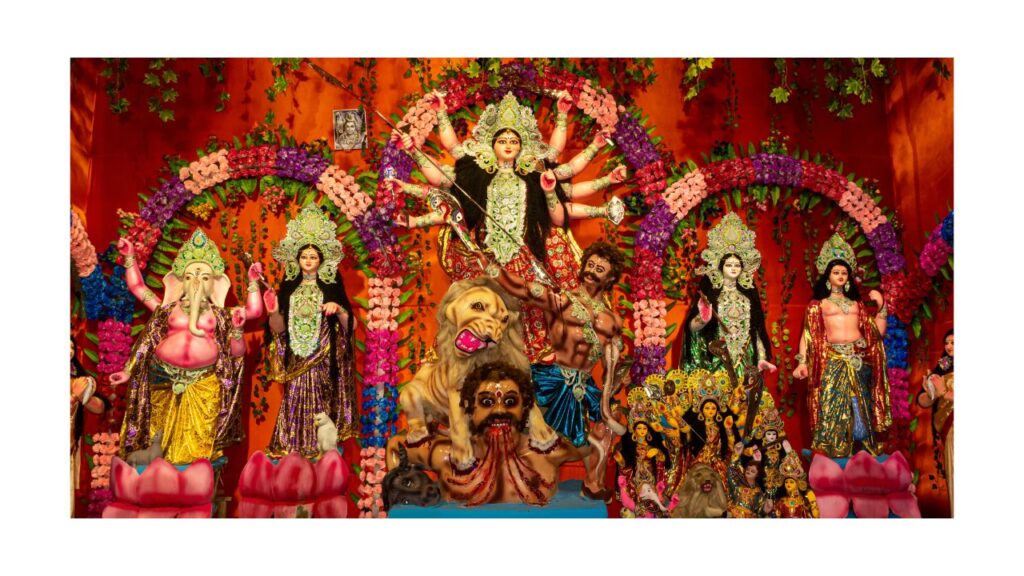
The Boon of Immortality
Mahishasura, with presumption coursing through his veins, requested a boon from Lord Brahma that would grant him immortality. Nevertheless, Lord Brahma, the possessor of universal law, tenderly reminded him that all life must ultimately perish. Mahishasura, undeterred, ingeniously requested a boon that he believed would guarantee his invincibility.
He requested that no man or deity could slay him. Rather, he would meet his demise solely at the hands of a lady. The consequences that would unfold were unknown to Lord Brahma, who, obligated by his vow, granted Mahishasura his wish.
The Reign of Mahishasura
Mahishasura unleashed his fury upon the universe, fueled by his newfound invincibility. He assembled a formidable army of demons and embarked on a mission to subjugate the heavens, even confronting the gods. He attacked Amravati, the celestial residence of Lord Indra, the monarch of the gods, with his demon horde.
The Trimurti, the divine trinity composed of Lord Brahma, Lord Vishnu, and Lord Shiva, provided the gods with refuge and assistance after they were expelled from their celestial residence. The Trimurti comprehended the severity of the situation after the gods articulated their predicament.
The Creation of Mahishasura Mardini
The Trimurti closed their eyes and focused their divine energy in response to the perilous circumstances. A brilliant pillar of light penetrated the heavens, illuminating the entire cosmos, as their energies merged. Mahishasura Mardini, the deity who vanquished Mahishasura, was born from this radiant energy.
The formidable divinity was crafted by the unique attributes of each deity. Lord Shiva bestowed upon her a fierce countenance, Lord Vishnu bestowed upon her multiple limbs, and Lord Brahma bestowed upon her legs. Her invincible power was symbolized by the gods’ adornment of her with divine weapons and ornaments.
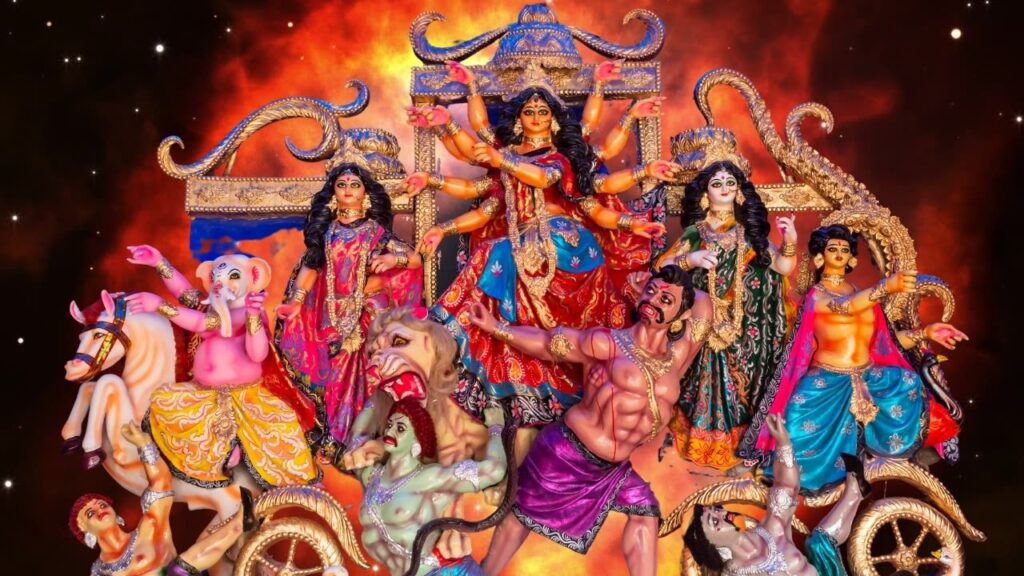
The Epic Battle
Mahishasura Mardini was mounted on a majestic lion and set out to confront Mahishasura. Her roar reverberated through the mountains and the seas as she approached, instilling fear in the souls of demons. Mahishasura dismissed her as a trivial opponent, underestimating the force of a woman.
He dispatched his demon army to confront Mahishasura Mardini; however, they were defeated one by one by her divine power. Mahishasura, who was unaffected by their defeat, fought a fierce combat with the goddess. He attempted to confound and overwhelm her by assuming the form of a variety of formidable creatures, including an elephant and a lion.
Triumph of Mahishasura Mardini
The battle continued for nine days, with neither party yielding. However, on the final day, Mahishasura confronted Mahishasura Mardini in a final showdown, this time in the guise of a buffalo. The goddess unleashed her divine wrath by wielding the potent weapons that the gods had bestowed upon her.
Mahishasura Mardini delivered a decisive strike with the Sudarshana Chakra she received from Lord Vishnu, the Trishul she received from Lord Shiva, and the lotus and holy water she received from Lord Brahma. She terminated Mahishasura’s dominion of terror and restored tranquility to the heavens by executing him.
The Allegorical Messages
The narrative of Mahishasura Mardini conveys profound allegorical messages that resonate with individuals of all ages. It serves as a reminder that even the most formidable adversaries can be defeated and that virtue triumphs over evil. Additionally, the narrative emphasizes the courage and authority of women, thereby refuting the stereotype that they are incapable of exerting any influence.
The buffalo deity, Mahishasura, is a representation of the negative qualities that exist within humans. The vices that impede personal growth and spiritual enlightenment are his arrogance, avarice, and ignorance. Mahishasura Mardini eliminates these detrimental qualities by defeating Mahishasura, thereby motivating individuals to confront their own interior demons.
Contemporary Relevance
The narrative of Mahishasura Mardini remains influential in the modern world. It functions as a potent reminder of the necessity of addressing the injustice, cruelty, and arrogance that are present in both our own selves and the world at large. The ten qualities that Mahishasura embodies—ego, cruelty, injustice, lust, wrath, greed, pride, jealousy, attachment, and selfishness—act as a framework for personal development and self-reflection.
This timeless narrative also emphasizes the significance of women’s empowerment and gender equality. Mahishasura Mardini, a fierce and powerful goddess, serves as a testament to the resilience and fortitude of women, motivating them to transcend societal constraints and assert their rightful position in the world.
Conclusion
The narrative of Mahishasura Mardini serves as a testament to the timeless wisdom and enduring force of myth. This teaches us that each of us possesses the capacity for grandeur and the fortitude to surmount any challenge. We can aspire for personal growth, combat injustice, and empower ourselves and others to create a better world by adopting the allegorical messages of this ancient tale.
Let us be motivated by the courage and determination of Mahishasura Mardini as we commemorate Navratri. May her narrative serve as an inspiration to future generations, serving as a reminder of the unyielding spirit that is inherent in each of us.
#mahishasura #mahishasuramardini #mahishasura #mardini #durgamahishasuramardini #durga #mahishasura #mardini

